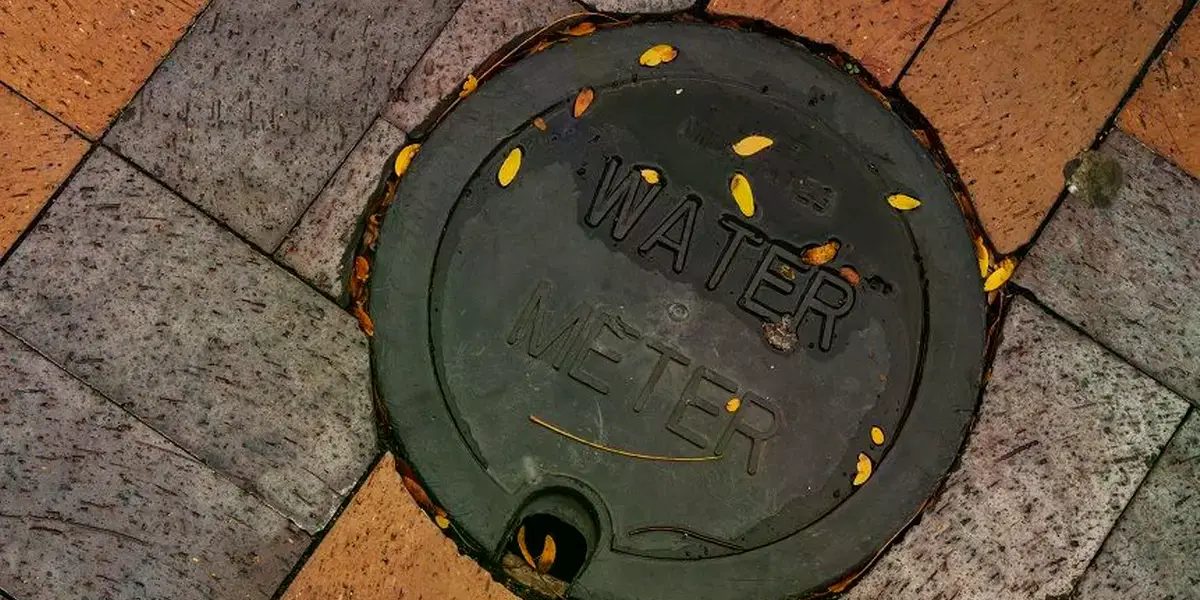AMI smart water meters allow customers to keep track of how much water they’re using so they can make informed decisions about their usage.
Data from the meters is transmitted to the water company – using Arqiva’s fixed network – at a regular frequency, typically every hour, allowing the water company to provide an hour-by-hour or day-by-day breakdown to the customer of how much water they’re using.
The high frequency of data captured also allows the water company to predict where there might be customer-side leaks. For example, where a consumer typically uses zero litres of water overnight, but the data then starts to show low level, consistent usage during these hours, the water company can act quickly to check whether there’s a problem.
Near real-time usage data improves the ability of water companies to identify and rectify customer-side leaks quickly.
Real-time data
These AMI (Advanced Metering Infrastructure) devices also allow water companies to improve the accuracy of the bills they issue to customers, since the water usage data they hold is always up-to-date.
There are other advantages for the water company: AMI meters don’t require a fleet of vehicles or people to read them, reducing meter reading costs.
The accuracy and quality of data held also improves the water company’s ability to forecast consumer demand. This then allows the company to manage its infrastructure more effectively.
Influencing demand
Research by Frontier Economics and Artesia, commissioned by Arqiva, concluded there were also other potential benefits. These included the ability for water companies to innovate with tariff strategies, increasing their ability to influence demand.
A more accurate view of consumer usage would also help water companies improve bad debt management, the research suggested.
Further adoption
AMI smart water meters make up only a small proportion of water meters in the UK, though this is expected to increase rapidly as the industry enters the AMP8 (2025 to 2030) regulatory period.
Thames Water, Anglian Water and Northumbian Water are pioneering the adoption of AMI smart meter technology in the UK, working with Arqiva to harness our fixed network for the transmission of data from the customer.
Transition to AMI
Many UK water meters use Automated Meter Reading (AMR) technology, which captures customer usage, but does not transmit the data back to water companies. Instead, the water companies rely on ‘walk-by’ or ‘drive-by’ readings, where a person or vehicle will capture readings by physically passing close to the meter. These readings are taken infrequently – typically twice a year – limiting the leakage identification and demand reduction benefits.
AMR meter readings can also be interrupted by temporary physical obstacles that get between the reader and the meter; and broader issues which impact the workforce, such as the Coronavirus pandemic.
Other meters rely on a manual reading of the dial.
Impact
AMI smart water meters present huge benefits for consumers, industry and the environment.
By 2050, it is projected that the UK water sector will face significant water shortages due to population growth and the impacts of climate change. Under this scenario, an additional 4 billion litres per day could be needed to ensure the UK’s water resilience.
One of the challenges is reducing leakage and water wastage more generally. Daily, the equivalent of about 1,245 Olympic swimming pools worth of water (over 3 billion litres) is lost to leakages in England and Wales. The UK water sector is working towards ensuring plentiful water supplies for the future, having set targets to greatly reduce water use and wastage.
Targeting leaks and supporting people to reduce their water consumption would have significant, wide-ranging benefits; ensuring more water stays in the environment, reducing the carbon associated with supplying and using water, as well as driving down the costs of supplying water.
Accurate, regular data on water use is key to making a positive change to water consumption.
Interested to hear more? Email uwl@arqiva.com to contact a member of the Smart Water team.
Views

New research: the risks and opportunities around smart water metering investments

New research: achieving the optimal smart water metering solution

Living with less: planning for a water-scarce future
